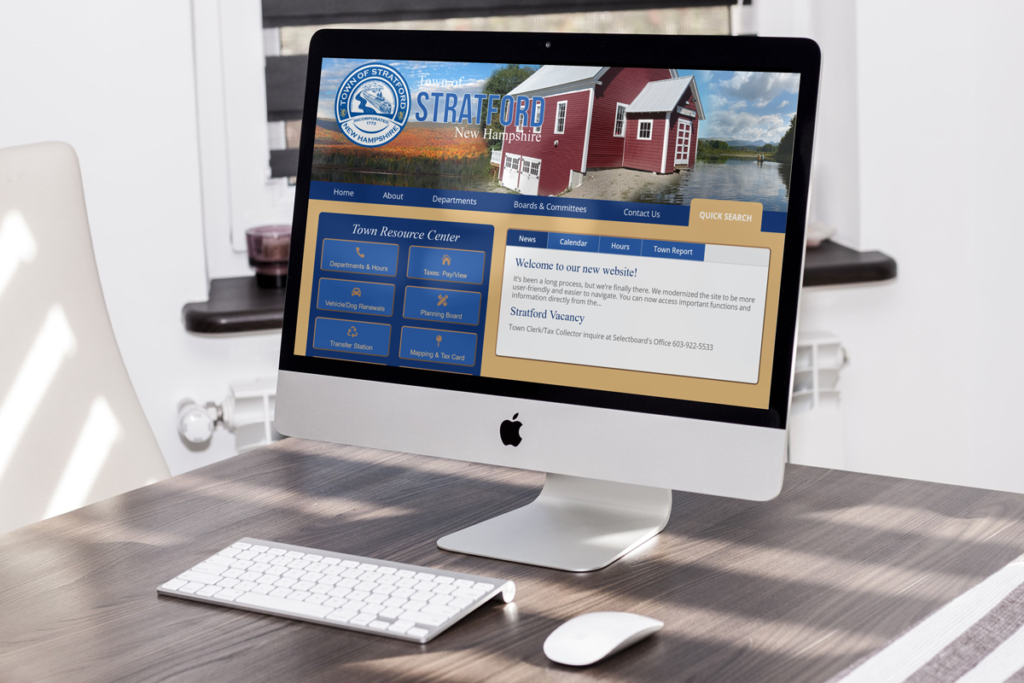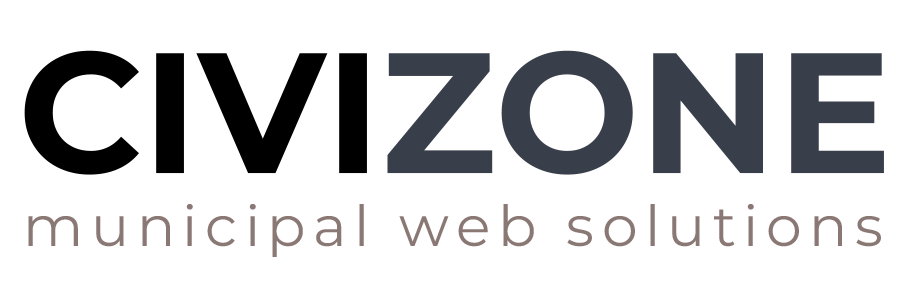A municipal website is more than just an online presence for a town or city, village or township, region or county, tourism or economic development. It’s a hub for the community, offering essential resources, timely updates, and a platform for residents to engage with their local government. To create a truly effective municipal website, it’s important to focus on accessibility, functionality, and the needs of the people who will rely on it. Here’s a closer look at the essential features every municipal website should include.

Clear and Intuitive Navigation
The navigation of a municipal website should guide visitors seamlessly to the information they need. Whether someone is looking for meeting minutes, property tax information, or upcoming events, the site’s structure should make these details easy to find. A well-organized menu, categorized pages, and a prominent search bar are all key to achieving this goal. User experience should always take precedence, ensuring visitors don’t get frustrated or overwhelmed.
Contact Information
Providing clear and comprehensive contact information is essential for any municipal website. This includes phone numbers, email addresses, physical office locations, and the hours of operation for various departments. A centralized contact page can be invaluable, allowing residents to quickly find the right person or department to address their concerns. Including an interactive map or directions to town offices can also enhance accessibility.
Government Transparency
A commitment to transparency is one of the most important roles of a municipal website. Residents should be able to access documents like meeting agendas, minutes, budgets, and reports with ease. A dedicated section for government updates ensures that the public stays informed about local decisions, projects, and policies. Providing this level of transparency fosters trust and keeps the community engaged.
Online Services
In today’s digital world, convenience is key. Municipal websites should offer online services that allow residents to complete tasks without needing to visit town offices in person. Features like online bill pay, permit applications, voter registration, and license renewals can save time for both residents and municipal staff. These services are particularly important for fostering inclusivity, ensuring that residents with mobility challenges or those living far from town offices can still participate fully in civic life.
Emergency Alerts and Updates
Timely communication during emergencies is critical. A municipal website should have the capability to display emergency alerts prominently on the homepage. This might include weather warnings, road closures, or other urgent notices. Integrating these updates with email or text message notifications can help ensure that residents stay informed even when they’re not actively checking the website.
Community Calendar
A community calendar serves as a central hub for local events and activities. From town meetings to festivals, sporting events, and library programs, a well-maintained calendar helps residents stay connected. It’s also a valuable tool for fostering community engagement, making it easy for individuals to discover and participate in local happenings.
Accessibility Features
An accessible municipal website is one that serves all residents, regardless of their abilities. Adhering to web accessibility standards ensures that individuals with disabilities can navigate and interact with the site. This includes features like alt text for images, keyboard navigation, and compatibility with screen readers. Prioritizing accessibility demonstrates a commitment to inclusivity and compliance with legal standards.
Local News and Updates
Keeping the community informed goes beyond just emergency alerts. Regular updates about local news, projects, and developments should be a cornerstone of any municipal website. Highlighting stories about new infrastructure, community initiatives, or public services can foster a sense of pride and belonging among residents. It’s also an opportunity to showcase the good work being done by local government.
Forms and Applications
Making commonly used forms and applications easily accessible is another key component of an effective municipal website. Whether residents need to apply for a building permit, register a dog, or file a complaint, these forms should be easy to locate, download, and submit. Offering digital submission options streamlines the process for everyone involved.
Social Media Integration
A municipal website should act as a hub for all communication channels, including social media. Integrating platforms like Facebook, Twitter, or Instagram ensures that residents can stay connected through their preferred channels. Featuring live feeds or links to official accounts can also help direct traffic between platforms and keep everyone informed.
Departmental Information
Each department within a municipality has unique responsibilities, and its information should be clearly outlined on the website. Dedicated pages for departments like public works, parks and recreation, and public safety provide residents with a direct line to the services they need. These pages should include detailed descriptions, contact information, and links to relevant resources.
Feedback Opportunities
A great municipal website encourages two-way communication between residents and their local government. Feedback forms, surveys, and contact options allow residents to voice their concerns, share ideas, and report issues. Creating space for public input demonstrates that the local government values community perspectives and is committed to serving the needs of its people.
Mobile-Friendly Design
With so many people accessing the internet via mobile devices, a responsive design is no longer optional. A mobile-friendly municipal website ensures that users have a seamless experience, whether they’re browsing on a desktop, tablet, or smartphone. Fast loading times, touch-friendly navigation, and clear layouts make it easier for residents to find information on the go.
Security and Privacy
Ensuring the security of a municipal website is vital to protecting sensitive information. Secure connections, data encryption, and regular updates help safeguard both the municipality and its residents from cyber threats. A clear privacy policy should also be in place, outlining how user data is collected, stored, and used.
Conclusion
A well-designed municipal website is more than a collection of pages—it’s a critical tool for connecting residents with their local government. By prioritizing accessibility, transparency, and usability, municipalities can create a website that truly serves their communities. Investing in these features ensures that the website remains a valuable resource for years to come, fostering trust, engagement, and a stronger sense of community.
